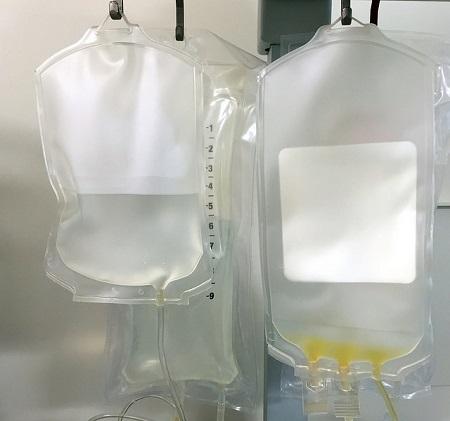Slight Changes to Broadly Neutralizing HIV Antibody Yield Great Dividends
Slight Changes to Broadly Neutralizing HIV Antibody Yield Great Dividends

Credit: NIAID
Cross-posted from NIAID Now Blog
To increase the number of biomedical HIV prevention tools available, scientists have begun to test whether giving people periodic infusions of powerful anti-HIV antibodies can prevent HIV infection, a strategy called passive immunization. The antibodies involved can stop a wide variety of HIV strains from infecting human cells and thus are described as “broadly neutralizing.” One naturally occurring, broadly neutralizing HIV antibody currently under study in passive immunization for HIV prevention is named VRC01.
Scientists at the NIAID Vaccine Research Center (VRC) slightly altered VRC01 with the goal of making it last longer in the blood while maintaining its neutralization capability. These characteristics could reduce the cost and increase the convenience of passive immunization against HIV because fewer doses of the antibody could achieve the same protective effect. This type of change to an antibody was first described in 2010 by researchers at Xencor Inc. in Monrovia, California. The altered form of VRC01 is called VRC01LS.
Led by NIAID scientists, the first clinical trial of VRC01LS has now demonstrated that the antibody is safe for people and persists in the human body more than four times longer than VRC01, according to a new report published in the journal PLOS Medicine. Moreover, when blood samples from people who had experimentally received VRC01LS were exposed to HIV in the laboratory, the altered antibody was just as effective as VRC01 at neutralizing multiple virus strains throughout the 48-week study.
Now that it’s clear the LS alteration helps broadly neutralizing HIV antibodies last longer while counteracting the virus just as well in the laboratory, scientists at NIAID and elsewhere are testing this change in other broadly neutralizing HIV antibodies to develop additional candidates for passive immunization. Moreover, several early-phase NIAID clinical trials of VRC01LS for HIV prevention and treatment, as well as other antibodies with the LS change, are planned or underway.
References:
MR Gaudinski et al. Safety and pharmacokinetics of the Fc-modified HIV-1 human monoclonal antibody VRC01LS: A Phase 1 open-label clinical trial in healthy adults. PLOS Medicine DOI: 10.1371/journal.pmed.1002493 (2018).
J Zalevsky et al. Enhanced antibody half-life improves in vivo activity. Nature Biotechnology DOI: 10.1038/nbt.1601 (2010).